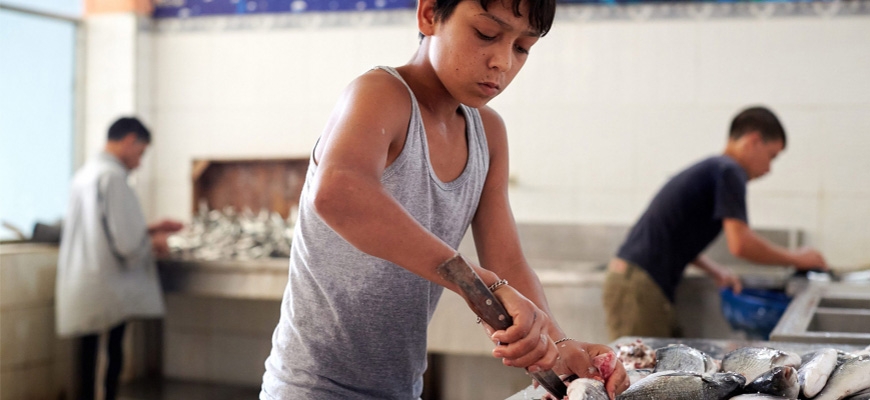
07 Aug 2015
Syrians children pay a high price because of the war in their country. As the world’s delay in ending the conflict, more children drop out of school, and are forced to work in the world of ruthless, and suffer from cruelty and exploitation and are exposed to many risks. Spread the phenomenon of Syrians child labor in Syria and neighboring countries, Lebanon, Iraq and Turkey, while the international organizations and local governments are unable to save the children.
In this framework, the United Nations aid groups Children’s Fund (UNICEF) and “Save the Children”, on the second of July, issued a report entitled “small hands heavy burden”, showed that the conflict and the humanitarian crisis in Syria are pushing increasing numbers of children to fall prey to exploitation in the labor market, it warned of the growing phenomenon of child labor and it pointed out that more children fragile and vulnerable, are those who engage in armed conflict, sexual exploitation and illegal work such as organized begging and trafficking in children.
The poverty, which targeted large proportion of Syrian families, the main reason for children being forced to work. According to the United Nations, suffers 4 of every 5 children from poverty.
In the same context, Ahmed, 13 years old, who lives in the Turkish city of Gaziantep: “On the day that we do not work we do not eat. I live in a room with my brother, my uncle’s family my grandfather and my grandmother, after my father and my mother died by the bombing of our home in Aleppo. Sometimes, we go back to the house in the evening we do not find food to eat. We buy some food, by what we gain from collection the waste plastics and other garbage. “He continues: “It is true that my uncle’s poor and he do not have money, but he hide the food from us. Sometimes, we do not gain a lot of money, so we buy sandwiches from the restaurants by borrow”.
Abdullah (15 years), works in a Turkish sweets shops, “I sell sweets to the Syrians because I speak Turkish and I work for 12 hours a day, although I accepted in the Turkish school, but I cannot go because of work. I come home exhausted, my younger brother, work in another place”.
Abdullah is one of between 2.7 million Syrian children out of school, according to the report, which stresses, too, that child labor prevalent in all countries where the Syrians exist today, such as Lebanon that cases of child labor record under the age of six, and Iraq, where up child labor rate Syrians, to 75%.
The social worker, Omar Khairy, pointed out to the seriousness of these figures in the long term, in light of turning millions of children who do not attend school today to illiterate parents in the future, what will delay the rebuilding of Syria and its development economically, except for the many social reflections.
Furthermore, many children are exposed to injuries during their work, espicially non-adults they do not realize the risks very well. The report pointed out that 75 per cent of children working in the Zaatari camp for Syrian refugees (northern Jordan) have health problems, with exposure of 22 per cent of children working in agriculture for injuries.
Omar Ayne, the paediatrician, confirms the negative serious impact of the work at an early age on the physical and mental health of children, he points out that the most prominent physical repercussions, is delayed mental and physical development, as well as flaws in the work of some members of the body according to the nature of the work, and the occurrence hormonal imbalance, in addition to the high infection, poisoning and diseases and other rates.
He adds that “there is a lot of psychological consequences that can be infected by the child as a result of the work environment, most notably the early depression and weakness of self-confidence, and aggressiveness except for the possibility of exposure of the psychological trauma caused by bad treatment or humiliation or sexual exploitation”.

 عربي
عربي